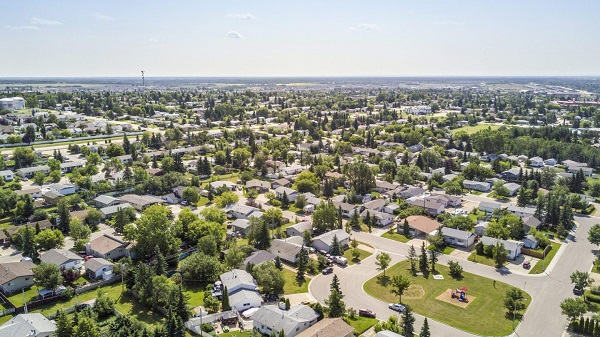Alberta
Contractors Association disappointed by Teck Withdrawal
From the Progressive Contractors Association
PCA Highly Disappointed by Withdrawal of Teck Resources Mine Project
Edmonton (February 24, 2019) – The cancellation of the $20-billion Frontier Oil Sands Mine Project, is a major setback for resource development in Canada, according to the Progressive Contractors Association of Canada (PCA), whose member companies and workers would have welcomed the opportunity to build the project.
“It’s a major blow to Canadian workers, their employers, First Nations, and investors,” said Paul de Jong, president of the Progressive Contractors Association of Canada (PCA). “This is a company that’s clearly been sideswiped by Canada’s failure to stand up for resource projects that matter to Alberta and all Canadians. We are at a crossroads with Canada’s resource economy. Teck’s cancellation culminates a 10-year regulatory process and had the support of all local First Nations. Canada must decide whether the rule of law and fair consultation will prevail, or a radical minority.”
Citing the ongoing debate over climate change policy, Teck Resources Ltd., withdrew its application to move forward with the project. PCA believes that Teck’s CEO Don Lindsay is right that Canada needs a better, more reliable framework for moving resource projects forward.
The project proposed by Teck Resources Ltd., would have created as many as 7,000 jobs during construction, another 2,500 jobs during operation, and billions in tax revenues to all three levels of government.
“Not only has Canada missed out on major jobs and revenue, it’s signalling to investors that this is not the right place for their investment dollars,” added de Jong. “Those opportunities are going to more sophisticated jurisdictions that have the vision and strategic approach to get national resources projects approved and built.”
About the Progressive Contractors Association of Canada (PCA)
With offices in BC, Alberta and Ontario, PCA is the voice of progressive unionized employers in Canada’s construction industry. Our member companies are responsible for 40 percent of energy and natural resource construction projects in British Columbia and Alberta and are leaders in infrastructure construction across Canada. PCA member companies employ more than 25,000 skilled construction workers in Canada, represented primarily by CLAC.
Contractors Association disappapointed by Teck Withdrawal.
Read more from Todayville Edmonton.
Alberta
REPORT: Alberta municipalities hit with $37 million carbon tax tab in 2023

Grande Prairie. Getty Images photo
From the Canadian Energy Centre
Federal cash grab driving costs for local governments, driving up property taxes
New data shows the painful economic impact of the federal carbon tax on municipalities.
Municipalities in Alberta paid out more than $37 million in federal carbon taxes in 2023, based on a recent survey commissioned by Alberta Municipal Affairs, with data provided to the Canadian Energy Centre.
About $760,000 of that came from the City of Grande Prairie. In a statement, Mayor Jackie Clayton said “if the carbon tax were removed, City property taxes could be reduced by 0.6 per cent, providing direct financial relief to residents and businesses in Grande Prairie.”
Conducted in October, the survey asked municipal districts, towns and cities in Alberta to disclose the amount of carbon tax paid out for the heating and electrifying of municipal assets and fuel for fleet vehicles.
With these funds, Alberta municipalities could have hired 7,789 high school students at $15 per hour last year with the amount paid to Ottawa.
The cost on municipalities includes:
Lloydminster: $422,248
Calgary: $1,230,300 (estimate)
Medicine Hat: $876,237
Lethbridge: $1,398,000 (estimate)
Grande Prairie: $757,562
Crowsnest Pass: $71,100
Red Deer: $1,495,945
Bonnyville: $19,484
Hinton: $66,829
Several municipalities also noted substantial indirect costs from the carbon tax, including higher rates from vendors that serve the municipality – like gravel truck drivers and road repair providers – passing increased fuel prices onto local governments.
The rising price for materials and goods like traffic lights, steel, lumber and cement, due to higher transportation costs are also hitting the bottom line for local governments.
The City of Grande Prairie paid out $89 million in goods and services in 2023, and the indirect costs of the carbon tax “have had an inflationary impact on those expenses” in addition to the direct costs of the tax.
In her press conference announcing Alberta’s challenge to the federal carbon tax on Oct. 29, 2024, Premier Danielle Smith addressed the pressures the carbon tax places on municipal bottom lines.
“In 2023 alone, the City of Calgary could have hired an additional 112 police officers or firefighters for the amount they sent to Ottawa for the carbon tax,” she said.
In a statement issued on Oct. 7, 2024, Ontario Conservative MP Ryan Williams, shadow minister for international trade, said this issue is nationwide.
“In Belleville, Ontario, the impact of the carbon tax is particularly notable. The city faces an extra $410,000 annually in costs – a burden that directly translates to an increase of 0.37 per cent on residents’ property tax bills.”
There is no rebate yet provided on retail carbon pricing for towns, cities and counties.
In October, the council in Belleville passed a motion asking the federal government to return in full all carbon taxes paid by municipalities in Canada.
The unaltered reproduction of this content is free of charge with attribution to the Canadian Energy Centre.
Alberta
MAiD In Alberta: Province surveying Albertans about assisted suicide policies

Alberta’s government is launching a public engagement to gather input about legislation and policies around assisted suicide, also referred to as medical assistance in dying (MAID).
Medical assistance in dying is a process that allows an eligible person to receive assistance from a medical practitioner in ending their life. To be found eligible, a person must be suffering from a serious and permanent medical condition.
Alberta’s government is reviewing how MAID is regulated to ensure there is a consistent process as well as oversight that protects vulnerable Albertans, specifically those living with disabilities or suffering from mental health challenges. An online survey is now open for Albertans to share their views and experiences with MAID until Dec. 20.
“We recognize that medical assistance in dying is a very complex and often personal issue and is an important, sensitive and emotional matter for patients and their families. It is important to ensure this process has the necessary supports to protect the most vulnerable. I encourage Albertans who have experience with and opinions on MAID to take this survey.”
In addition to the online survey, Alberta’s government will also be engaging directly with academics, medical associations, public bodies, religious organizations, regulatory bodies, advocacy groups and others that have an interest in and/or working relationship to the MAID process, health care, disabilities and mental health care.
Feedback gathered through this process will help inform the Alberta government’s planning and policy decision making, including potential legislative changes regarding MAID in Alberta.
“Our government has been clear that we do not support the provision of medically assisted suicide for vulnerable Albertans facing mental illness as their primary purpose for seeking their own death. Instead, our goal is to build a continuum of care where vulnerable Albertans can live in long-term health and fulfilment. We look forward to the feedback of Albertans as we proceed with this important issue.”
“As MAID is a federally legislated and regulated program that touches the lives of many Albertans, our priority is to ensure we have robust safeguards to protect vulnerable individuals. Albertans’ insights will be essential in developing thoughtful policies on this complex issue.”
The federal Criminal Code sets out the MAID eligibility criteria, procedural safeguards and reporting obligations. The federal government has paused MAID eligibility for individuals with a mental illness as their sole underlying medical condition until March 2027 to ensure the provincial health care systems have processes and supports in place. Alberta’s government does not support expanding MAID eligibility to include those facing depression or mental illness and continues to call on the federal government to end this policy altogether.
Related information
-

 Brownstone Institute18 hours ago
Brownstone Institute18 hours agoThe Most Devastating Report So Far
-

 Economy1 day ago
Economy1 day agoCOP 29 leaders demand over a $1 trillion a year in climate reparations from ‘wealthy’ nations. They don’t deserve a nickel.
-

 Censorship Industrial Complex22 hours ago
Censorship Industrial Complex22 hours agoAnother Mass Grave?
-

 ESG5 hours ago
ESG5 hours agoCan’t afford Rent? Groceries for your kids? Trudeau says suck it up and pay the tax!
-

 Alberta21 hours ago
Alberta21 hours agoMAiD In Alberta: Province surveying Albertans about assisted suicide policies
-

 Alberta1 day ago
Alberta1 day agoOn gender, Alberta is following the science
-

 Energy1 day ago
Energy1 day agoOttawa’s proposed emission cap lacks any solid scientific or economic rationale
-

 International6 hours ago
International6 hours agoElon Musk praises families on X: ‘We should teach fear of childlessness,’ not pregnancy


